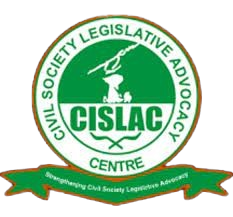The Civil Society Legislative Advocacy Centre (CISLAC), in collaboration with Transparency International Defence and Security Program (TI-DSP), has launched policy briefs to address corruption in Nigeria’s defence sector.
Speaking at a press briefing in Lagos, CISLAC outlined critical issues, including financial mismanagement, procurement irregularities, and gender exclusion.
Executive Director of CISLAC and Head of Transparency International in Nigeria, Auwal Ibrahim Musa (Rafsanjani), called for urgent reforms to tackle the challenges plaguing the sector. He stated, “Reform initiatives in the Defence and Security sector must remain sacrosanct, particularly at a time like this when Nigeria battles an epidemic of multi-dimensional security threats such as Boko Haram, ISWAP, banditry, and kidnapping.”
Musa who was represented by CISLAC’s Programme Manager, Jimoh Abubakar highlighted systemic corruption and identified key drivers, such as phantom contracts, inter-agency rivalry, and delayed appropriations, which he said have “hampered counter-terrorism operations, endangered lives, and undermined the morale of frontline troops.” He also criticized the misuse of “security votes,” adding, “Transparency International raised alarm that over N241.2 billion annually spent on security votes was unaccounted for by the Government in Nigeria.”
He condemned excessive secrecy in military operations, noting, “Even basic items like pens and paper are classified as ‘secret.’ This excessive secrecy excludes the defence sector from civilian oversight.” He further criticized outdated laws like the Official Secrets Act, Procurement Act, and Freedom of Information Act. According to him, “Without proper amendments to these laws, we will continue facing the same challenges. Transparency and accountability must be prioritized to rebuild trust and efficiency in the sector.”
Abubakar also expressed concerns about the National Assembly’s role in tackling corruption, citing conflicts of interest. “Some legislators have vested financial interests, compromising their ability to ensure accountability. Capacity building is essential to enable legislators to effectively interrogate the sector’s complex operations.”
The policy briefs launched by CISLAC propose solutions to enhance transparency in military procurement, address gender disparities, and strengthen oversight mechanisms. Abubakar stressed the importance of collaboration, stating, “The media and civil society must ask questions and reset the agenda. When everyone speaks out, accountability becomes inevitable.”
CISLAC emphasized that joint efforts among civil society, the media, and the government are crucial to rebuilding trust and efficiency in the defence sector.









